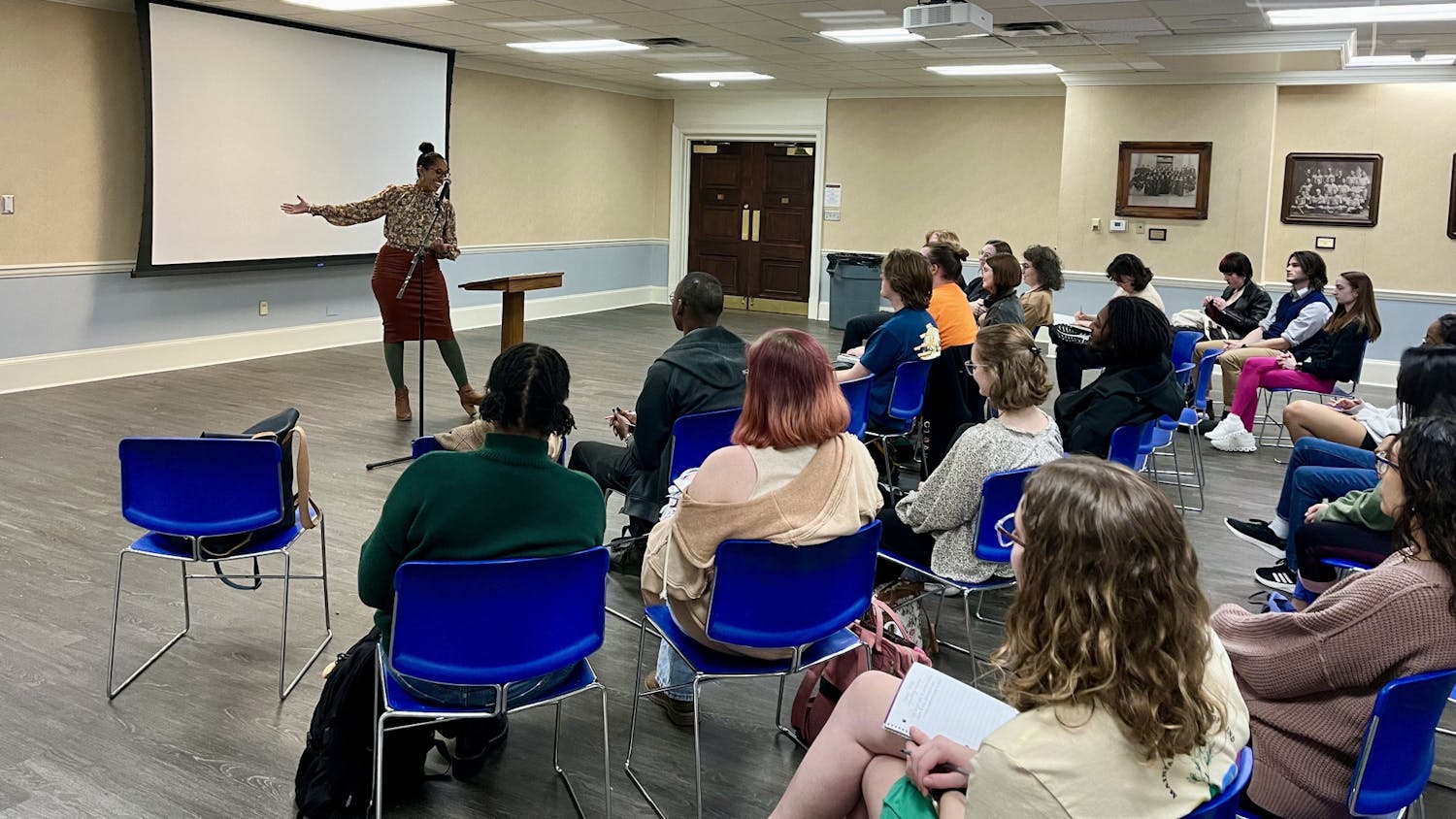The most succinct explanation I can give of the Mercer Players’ latest performance comes from a conversation I heard during intermission between two elderly ladies sitting near me in the audience. They had been among those in the audience laughing hardest during the performance, and now they were keeping up a stream of wry commentary to pass the time until the second act.
As I pretended to read my program while keeping one ear on the conversation, I caught this exchange: “It seems,” one remarked drily to her friend, nodding toward the stage, “that we have a dysfunctional family.”
“Dysfunctional” is putting it mildly. “Independence,” by Lee Blessing, takes a look at the dynamic between three eccentric daughters and their borderline-crazy mother.
When Kess, the driven scholar of the family, comes home to assist her sister Jo after their mother’s impulsive actions afflict Jo with a neck injury, the tension in the family boils over as the women deal with pregnancy, lovers (male AND female), mental instability and the tendency of their hometown, Independence, to be exactly what one expects of a small town: a place where people settle and, even after generations, never seem to be able to escape.
“Independence” is not a plot-driven play, so not a lot happens.
However, the energy and tension were established from the first scene, as a simple conversation between Kess and Jo quickly erupts in bursts of pent-up tension. The two 45-minute acts flew by as the cast navigated their characters’ rocky relationships.
“Independence” only features four cast members, all female. With a cast this small, the ensemble is everything.
Director Scot Mann did an incredible job with his cast, whose chemistry was excellent all around.
Senior Suzanne Stroup, most recently seen as Portia in Shakespeare’s “The Merchant of Venice” earlier this fall, delivered what might be her best performance at the Back Door Theatre thus far.
She played the role of Kess, the responsible member of the Briggs clan whose main goal is to keep the fractured family together and repair her estranged relationships. Stroup’s performance as the restrained and independent Kess was incredibly believable.
Playing Kess’s gentler, earnest middle sister was another familiar face to the Back Door Theatre: Sarah Beth Roach, who is a junior this year.
Roach in particular had sizzling chemistry with the rest of the cast, adapting her role to her very different relationships with each of the other characters.
Her performance highlighted Jo’s sweet and self-sacrificial nature without completely obliterating a side of Jo her mother doesn’t always see: someone who earnestly wants to love and be loved, and who will often accept much less than she deserves just to have something to hold onto.
Ninti Chance made her debut performance as Sherry, the youngest of the Briggs sisters. For her first Back Door appearance, Chance had a surprisingly strong performance as a rebellious, artistic and blunt small-town teenager.
At once a product of and a reaction to her environment, Chance’s character chafes against the bonds of Independence and yearns to leave home like her sister, who she resents for leaving the rest of the family behind.
Chance’s delivery was somewhat stiff at the beginning of the show, but I’m putting that down to opening-night jitters; she warmed up as the show progressed.
Her delivery was best when her character was worked up into an angry fit, and her exaggerated facial expressions were always spot-on.
Pam Burkhalter brought life to the matriarch of the Briggs family, Evelyn. Burkhalter, a retired teacher who moonlights as an actress at local Macon venues, provided an effective blend of being candid and crazy.
Evelyn’s character achieves an ambiguity that is hard to capture; one is never quite sure whether she has actualy succombed to mental weakness or if she is feigning it to get attention from her daughters, particularly Jo.
Burkhalter managed to convey a sense that her character had only a tenuous grasp on her sanity and self-control, which she retains through being dependent and manipulative.
Especially compelling were the scenes in which Burkhalter’s character gave vent to her less rational side—a transition that Burkhalter made seamlessly and effectively, without giving in to the temptation to go over the top in her portrayal of mental instability.
The acting alone made “Independence” one of the best performances I have seen on the Back Door stage. Every other aspect was icing on the cake.
I’m always amazed at the versatility of the venue’s small space, and this show was no exception: the set as well as the actresses’ delivery made me, as an audience member, feel as though I really was looking into the Briggs’ living room through a window.
The crew could convey the passing of time by changing the lights behind the set’s windows, creating daylight, nighttime, dusk and early morning.
In the area of costumes, “Independence” did not call for anything as elaborate as “The Merchant of Venice” required, but Shelley Kuhen still did a fantastic job at picking clothes that conveyed a sense of each actress’s character.
Even the music chosen for the scene changes gave a sense of continuity: because Kess is a professor of Scottish border ballads, Scottish music played during the blackouts.
At once darkly hilarious and painfully sad, “Independence” was a gripping emotional ride, keeping the audience laughing at one moment and gasping in shock the next.
Those who did not make it to the performance should know that they missed one of the best shows the Players have put on in recent years.




